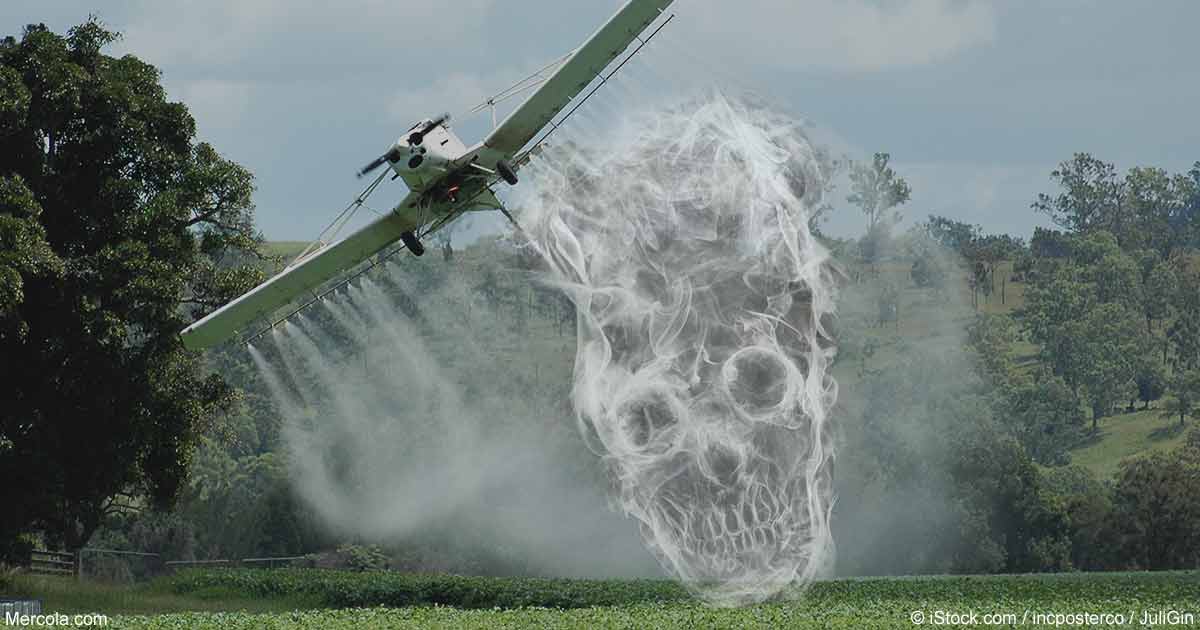
Insecticide Poisoning
About Organophosphate Poisoning: Organophosphate poisoning results from exposure to organophosphates - chemical compounds found in insecticides and nerve agents.Organophosphates cause the inhibition of acetylcholinesterase which leads to the accumulation of acetylcholine in the body. Accidental ingestion of pesticides at home, consumption of pesticide contaminated food, or even exposure to pesticides applied to homes or lawns can all be methods of acquiring acute pesticide poisoning.In the developed countries of the West, we are able to combat many of the immediate effects of acute pesticide poisoning as it occurs only from one single exposure.
The fear about poisoning is not unfounded even with the regulatory and medical advances these days. Many household goods that previously had the potential to be dangerous poisons have been made safer.
Those that are still dangerous are usually clearly marked and have safety measures like tamper-proof caps thereby decreasing the chances of accidental poisoning especially in children. But poisoning still occurs, even with otherwise relatively “harmless” OTC medication, stronger prescription drugs, antifreeze, brake fluid and strong detergents. Insecticide or pesticide poisoning is still a real risk within the household. The formulation of many insecticides/pesticides has been changed in recent years to make it less toxic to humans. But not entirely so.
Garden pesticides that are often needed to battle more hardy pests in the outdoor environment is still highly toxic. But even indoor insecticides can also be a problem if it is ingested or large amounts of an aerosol insecticide is inhaled especially in a closed room. So how do you know if you, an adult or a child has been poisoned with an insecticide/pesticide?
Spotting the signs and symptoms of acute poisoning as early as possible can make the difference between life and death. What is acute poisoning?Acute poisoning means that a person has been exposed to a large amount of a poisonous substance. The most common route is through eating or drinking foods or liquids that are tainted with a poison or consuming the poison on its own. But it can also enter through the airways when it is inhaled or through the skin by direct contact. In contrast, chronic poisoning is a result of long term exposure usually to small amounts of a toxin. It is more often seen these days in the workplace but can also be a risk to the general public when the ground water or air is polluted.With acute poisoning, a person may have been exposed to just a single dose of a poison or many small doses of a poison over a short period of time.
Either way the amount of poison that has entered the system is sufficient to affect the functioning of different parts of the body and lead to the development of symptoms. Pesticide poisoning can affect both adults and children. The clinical effects are often more serious in children due to the lower body weight. But it can have deadly consequences even for adults.There is no effective pesticide that is 100% safe to humans. Some types may have more rapid and devastating effects in the human body than others but ultimately even the mildest pesticide can be dangerous if consumed in a large enough dose.
The safety profile of some pesticides over others is that it is not as toxic to humans in small doses or in quantities that are usually needed for it to fulfill its purpose. Nevertheless even the mildest pesticide can lead to, either accidentally or sometimes intentionally. Main Pesticide Poisoning SymptomsThere are several different types of pesticides used in the home, garden and on farms. Some types of chemical pesticides that have become a problem in poisoning cases are:. Organophosphate pesticides. Organochlorine pesticides. Carbamate pesticides.
Pyrethroid pesticidesThe symptoms of acute poisoning with the different types of pesticides does overlap to a large extent. The symptoms of pesticide poisoning can vary when a pesticide is eaten or drank as compared to it being inhaled or absorbed through the skin. Mary skelter: nightmares maps.

Eventually all of the symptoms seen with pesticide poisoning will arise. Some of the first symptoms that are seen with ingesting a pesticide is nausea and vomiting. Abdominal pain usually follows. These symptoms largely mimic gastroenteritis (stomach flu) and many people ignore it. Other symptoms that also arise with pesticide ingestion are confusion, tremors and respiratory distress. Once seizures or a coma occurs, the outcome may be very poor. Inhalation and Skin ContactThe initial poisoning symptoms seen when these toxins are inhaled or absorbed through the skin may be slightly different from the symptoms that arise with ingesting pesticides.
I see you deck and you have dragon card in deck also with dino card, this make no sense. Cards and castles legendary youtube. This is proved what you sayed incorrectly, because they haveing number onto themselves name. I seed many time people that have named the enemy in games and they haves named of with containing numbered. You just can no handle the true thing that is what you are no good in game.
There is irritation and burning in the ears, nose and throat. Excessive tearing and burning of the eyes are also some of the first symptoms seen with exposure to aerosol pesticides.
Vision is blurred and a persistent cough develops. There may be abnormal breathing sounds with difficulty breathing in the case of inhaled pesticides.
A skin rash is another prominent symptom that arises when pesticides make contact with the skin.References:Types of pesticides.Symptoms of pesticide poisoning.Acute poisoning.